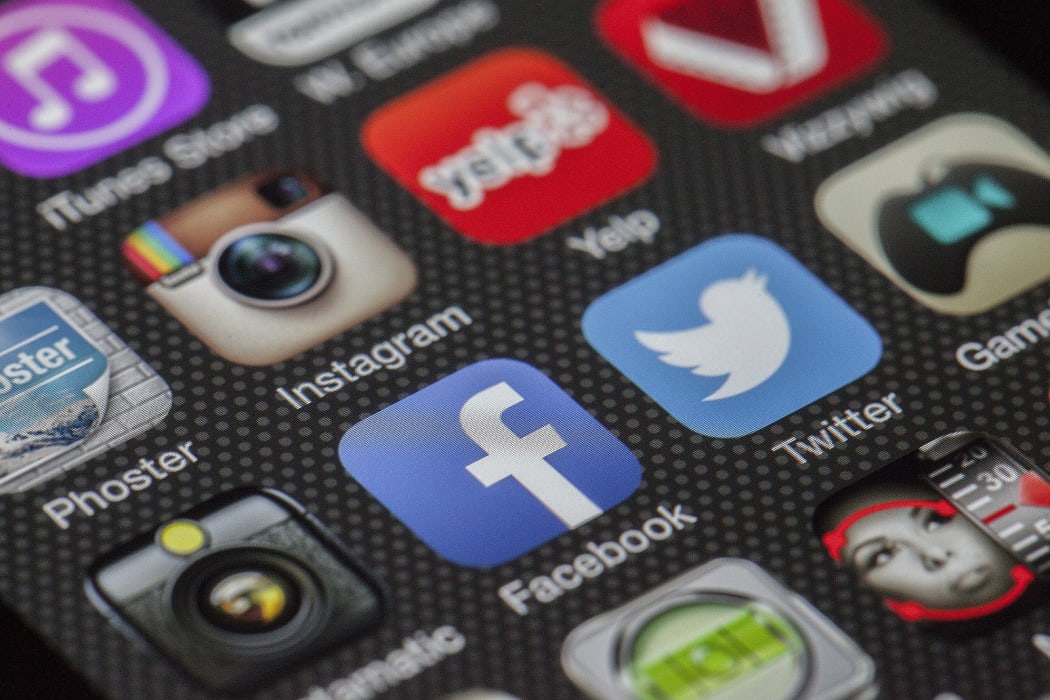Feeling emotionally overwhelmed? It could be time to delete a few apps.

Photo: HAMZA BUTT/Flickr
The majority of us spend hours everyday scrolling through various social media sites, chasing the likes and keeping up-to-date with what’s going on around us.
It’s a great way to stay connected, but that warm feeling you get when someone likes your post can be intensified tenfold when you experience mental illness.
Charlotte-Rose Ruddell is part of growing number of people who are switching off to stay switched on, deleting her social media accounts in an effort to stay in control of her wellbeing.
A recent survey of almost 1500 14-24 year-olds found Facebook, Twitter, Instagram and Snapchat harmed young people's mental health. The social networks exacerbated body image concerns, were platforms for bullying and provoked feelings of anxiety, loneliness and depression.
See ya later to all those lonely times creeping on perfect strangers' Instagram accounts.
“Withdrawing from social media wasn’t an easy thing to do,” Charlotte says. “But I knew that it would really benefit my mental health, so I talked myself into it over a period of months and then one day just decided to go for it.”
First to get the flick from Charlotte was Facebook. “So long late nights scrolling a chaotic newsfeed on my phone when I couldn’t sleep.”
A month later she ditched Instagram too. “See ya later to all those lonely times creeping on perfect strangers' Instagram accounts.”
Charlotte was at the beginning of a six month trip through India and Nepal - a much needed break after a stressful year - when one evening she found herself unable to come down from the high of meeting an inspiring writer.
What followed was a journey into psychosis and eventually a diagnosis of bipolar disorder.
The overstimulation of social media doesn’t really work with her mood disorder. “Being a classic over-thinker I might post a status or comment, and then worry that I’d been too boastful, or ignorant or that I was condescending to somebody. I might still be thinking about it three days after the fact.
“I also started arguments over Facebook when my mood dipped low or if I was irritable. And like a dog with a bone I wouldn’t be able to let it go. I would loose my sense of boundary or read the situation completely wrong.”
Minor conflicts would send her into a tailspin for several days.
“On the other hand, I might have posted something that got a lot of positive comments and likes which would send my mood sky high. And it would make me want to spend more time online, to share more and be experiencing a continuous loop of positive feedback.”
It’s something she needs to watch over rather carefully, the balance between the highs and lows.
While everyone’s experience of social media is unique and not all mental illness is the same, more than one study associates social media use with increased depression.
It’s not just that we are using it but also how much we are using it. One particular study shows the more time spent on social media, the more likely participants were to be at risk of depression. Denmark’s Happiness Research Institute even found that coming off Facebook for a week could lead to higher levels of life satisfaction and less stress.
The Mental Health Foundation sees the benefit too. Chief executive Shaun Robinson says “taking a break from social media or limiting your time on some platforms can help when you encounter harmful experiences online or if you’ve noticed that social media is affecting how you feel in negative ways.”
He acknowledges that social media can help those with mental illness connect, especially when they are feeling isolated or in need of support. “If there is a trend of people leaving social media, it could possibly mean that people are now listening to their emotions more and noticing changes in their moods when they are on social media.”
While it’s one thing to live with memories of the difficult or scary times, it's quite another to have them drawn to your attention by Facebook Memories ...
Changing the way we interact, social media allows us to share the important, and sometimes banal moments of our days instantly with our networks.
It also allows us to preserve our memories online. Never before have we had such a vast collection of photos of ourselves sitting at our finger tips, which is great - unless it’s a constant reminder of times in life that you’d rather forget.
“Difficult moments from my past have been captured forever and immortalised on the internet. Just ordinary photos from around the time when I experienced psychosis are enough to make me feel very uncomfortable," Charlotte says.
“While it’s one thing to live with memories of the difficult or scary times, it's quite another to have them drawn to your attention by Facebook Memories as if you needed a constant reminder that this time last year you were losing your mind or recovering from it in a very slow and painful fashion.”
While disconnecting from social media all together may be a big step, Charlotte says, for somebody who quite often feels overwhelmed, she’s made the right decision in removing herself from what she views as a completely overwhelming environment.
“Family and friends still text, call and email me. Life continues as normal, only simpler and easier.”

